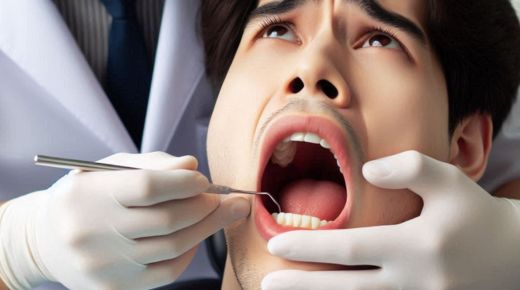
Experiencing a clicking or popping sound in your jaw is more common than you think. While it is harmless in most cases, a persistent issue can indicate a more serious problem. Almost all people experience this once in their lives. The jaw is made up of various things– bones, muscles, connective issues, etc. They help you speak, chew, and swallow.
If all of these things do not work in harmony, your jaw cannot move smoothly. Several things can result in audible clicks or pops, including jaw clenching and grinding to TMJ disorders. While the occasional clicking may not be a problem, you should not ignore any painful symptoms. There are various skilled dentists in Abilene that can treat this issue.
If you or your loved one is experiencing clicking or popping in your jaw, you are advised to schedule a dental appointment with a dentist in Abilene, TX. If you have any serious underlying issues, a check-up can help you find it.
What causes clicking or popping jaws?
- Temporomandibular joint (TMJ) dysfunction.
The temporomandibular joint connects your lower jaw to the skull, which helps you chew and speak. However, when the temporomandibular joint is not functioning properly due to any injury, stress, or muscle disorders, it can lead to temporomandibular joint dysfunction.
When this happens, the articular disc within the joint slides out of place while closing or opening your mouth and releases a clicking or popping sound. It is important to address these issues early to avoid more severe jaw issues in the future.
- Jaw misalignment or bite issues.
Jaw alignment occurs when the teeth do not align properly in their palace, which could affect the functioning of your jaw. This improper bite can stress the TMJ, leading to strain on the muscles that control jaw movement.
When your jaws are misaligned, they rub against each other and make a clicking or popping sound when you speak or eat. If this issue is not treated early, it can lead to chronic pain and affect normal mouth movements.
- Arthritis.
There are two types of arthritis that can affect the TMJ, including osteoarthritis and rheumatoid arthritis. Osteoarthritis may result from the wear and tear of cartilage over time, which can lead to pain and stiffness in your jaw.
However, rheumatoid arthritis, an autoimmune disease, affects the synovial tissue lining the joint and results in severe pain and swelling. Both conditions can lead to inflammation in your jaw and result in a popping sound as your bones rub against each other.
- Trauma or injury.
Injuries to your jaw or face from accidents or sport-related incidents can affect the functionality of your jaw. These incidents can result in structural damage to your TMJ and affect their movement.
Such changes can lead to a popping or clicking sound when you try to move your jaw while eating or speaking.
- Bruxism (Teeth grinding).
Bruxism refers to the continuous grinding or clenching of teeth, which is often linked with stress or anxiety. This causes immense pressure on the jaw and leads to pain in the muscles surrounding the temporomandibular joint.
Grinding your teeth can make your jaw problems worse and contribute to the development of clicking or popping sounds.
When should you be concerned?
Occasional clicking or popping sounds while opening or closing your jaw are usually harmless and common among individuals. However, if this issue is persistent, you must consult a doctor to know the underlying cause.
The problem starts when these clicking sounds are associated with pain, swelling, headaches, or earaches. Common signs of TMJ disorders include lockjaw and persistent pain around the joint. These symptoms can indicate temporomandibular joint dysfunction, which could lead to further complications if not addressed timely.
Don’t endure the pain!
If the clicking or popping in your jaw has become painful, get dental help in Abilene, Texas, today!
